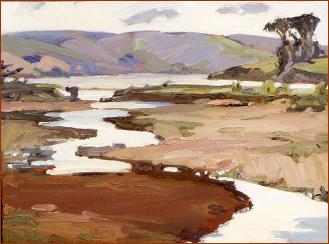



Restoration and Management.
Vegetation Management
The best and most reliable way to develop a stable, rich and diverse native plant community is to develop an ongoing management system that favors the native plants. As much as possible, we let the plants and other organisms do the restoration themselves. The conventional "restoration" project is but one component of an overall management program.
Managing any particular site can lead to a range of potential plant communities, and we work with you to decide which will work best for you and your guests, as well as the long term health of the plants and wildlife. We direct, accelerate and enhance the natural process of succession to move in a favorable direction.
The initial tendency of most people is to leave their natural areas unmaintained. You will find, however, that the plant community will continue growing and changing anyway, but without your guideance, it will probably be in a direction you don't like. It usually doesn't take a major effort to maintain a healthy plant community healthy, and keep it moving in a positive direction. We can help you find a level of maintenance that works within your budget, while keeping the natural community in a healthy and compatible condition.
Pacific OpenSpace works with you to develop a management plan that encourages species diversity, reduces noxious weeds, reduces wildfire hazard, and maximizes your use and enjoyment of the land.
Establishment and Enhancement of Plant Communities
The natural process of selection only works if the native plants are already there. However, you may have a site that was recently been disturbed, is presently bare soil or is simply lacking in native plants. Pacific OpenSpace can help you establish the initial native plant cover. We work with you to determine the species for initial seeding and planting as well as the most appropriate methods to prepare the site and restart a stable and functioning native plant community.
The process of installation is called "Restoration". Most people concentrate on that step alone. We prefer to see it as the initial phase in an ongoing process.


